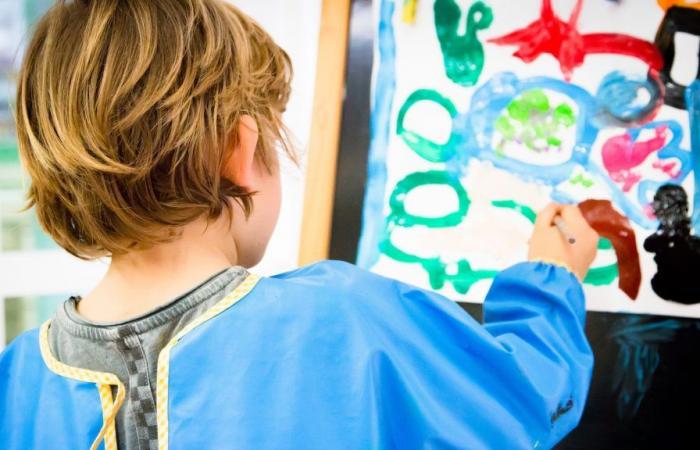Alex AragonésBarcelona 06/23/2024 09:00 a.m.
Edumar, the school without textbooks awarded in Catalonia
Work no textbooks and with dossiers created by the students themselves has led to Edumar school from Castelldefels (Barcelona) to be award-winning with the 2024 Teaching Prize, awarded by the Cercle d’Economia Foundation in Catalonia. A recognition of its inclusive and innovative model that turns the school into “a life project” for the little ones.
“What is special about us is the look at innovation. Each child is unique and different. Need a ppersonalization of your learning. We value this fact,” explains Tana Tarapiella, the director of a center that celebrates 50 years since it opened its doors to the first students.
The center began in 1974 with a small group of families looking for an inclusive school. A place of learning that has always had innovation as the cornerstone of its teaching: “Since the school started, one of the lines is that there were no textbooks. Yes, there are books and each classroom has its library, but what we do is that the students generate their own learning dossiers.”
Different classroom proposals
Some methodological strategies designed to carry out diversity. “Children have different realities and can work together. Inclusion is important, it is not worth it if there are not enough resourcesWhat we have is what we have and we have to make it profitable“, acknowledges Tana.
To do this, the classes are organized through different classroom proposals. “They are rich in quantity and variety of stimuli to promote the integral development and challenge generator to do, look, touch, explore, experiment, create, allowing individual and collective activities to be combined.”
In this way, each strategy they carry out generates its own dossier for the students. An example of this are the different itineraries. “There is three teachers to do at the same time Mathematics, Catalan and Spanish. Each child makes their itinerary accompanied by the teacher who guides them. “They do their process and collect their evidence in a dossier.”
{{ #cards }}
{{#section.link.href}} {{section.link.title}} {{/section.link.href}}
{{title.data}}
{{ /cards }}
Autonomous work
The same happens with the proposal boxes, which are based on autonomous work in small groups through attractive, self-corrective materials and manipulative games. They consist of between six and eight boxes included in the different areas of the curriculum, based on the corresponding dimensions and content blocks.
“The teachers distribute them into the levels and prepare materials where the children can decide autonomously which learning box they want to do at the moment. This will last a week and will be done with those children who have chosen the same. That box will have all the necessary material to develop the learning that the teachers want them to develop,” adds the director.
He ‘great trip‘ is an example of this type of methodological strategy. “The students have different types of families and they choose which one they want to be. That family has an income, so they decide the percentage of what they save for the holidays. “They also calculate within a year or two where they can go on vacation, what place, what transportation and cost, the place they will visit or the accommodation.”
There’s also kitchen boxeswhere they have to choose healthy recipes: “They look to see if there is that material in the garden, if not they make a list of the products they need. We have a supermarket next door, they look at the cost, they ask the secretary for the money and they go to buy it. This is how they look at the change, they classify the food and they play with fractions, area and perimeter.
“Tangible learning”
An “essential” teaching in their daily lives, where the “learnings are tangible.” From the most concrete to the most abstract: “Always with evidence for them to internalize it“. A large part of the success model also falls on the faculty. “They have made education their passion and it is totally vocational. Involvement is important because the work hours are many. There are no books, we have to generate the material and make the basis for all the learning that the children will do.”
A public school, where all children have capacity. “It’s a life project for each student because each one has their own reality.” A premise that with the award received, from the Cercle d’Economia Foundation, “gives them wings to continue” with the work of a center with 50 years of history.
Subscribe to the Informativos Telecinco newsletters and we will tell you the news in your email.
Follow us on our WhatsApp channel and find out all the news at the moment.


